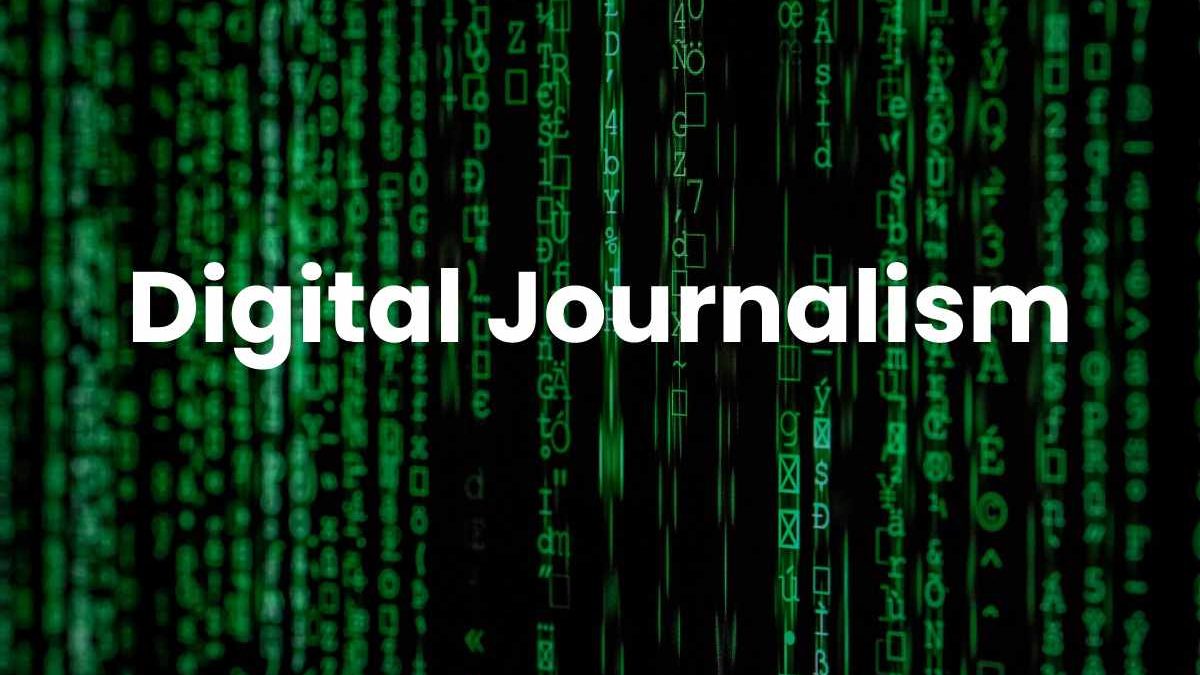Digital Journalism, also called cyberjournalism, is a new term to describe the tendency of journalism whose main development space is the Internet and the constant flow of content, the so-called cloud journalism.
This new area of journalism has to do directly with the development of new technologies, especially since the end of the 20th century. With their different genres and modes of expression, social media such as radio, television, the press, cinema and others, with their different genres and modes of expression have been making inroads into the new social media of the 21st century.
Today it is possible to tune into stations, watch TV channels, movies, music, read newspapers, and more on the Internet. Consequently, we speak of digital radio, television, and digital press to refer to the media transmitted using digital technology, more versatile and with more features than the old analogue or broadcast through cyberspace.
Table of Contents
More Information About Digital Journalism
For many, this growing phenomenon endangers the very existence of conventional media. However, it recalls the same reactions during the nineteenth century when new media developed, such as photography for painting, television for the cinema and others. On August 27, 2007, one of the Internet creators, Vint Cerf, said at the Edinburgh International Television Festival that today’s television numbered S3 because 85% of all video material seen pre-recorded and it’s all being put on the Internet. This phenomenon has also created a new version of the journalist: the digital one, that is, the one who produces information through the Internet and, consequently, a growing digital audience.
Journalism becomes digital at the moment in which it begins to gain a space in cyberspace. This phenomenon has been gradual and has not been peaceful due to the rigid concepts of certain media about what traditional media is. Suppose a newspaper understood as a paper edition printed and distributed in the streets of cities by hundreds of vendors. In that case, the idea of a digital newspaper, whose edition seen through a computer connected to an Internet network, is not so easy to accept. Instead, a paper newspaper paid for directly, copy by copy, and, on the Internet, most people can enter to read it without paying, at least as understood by some.
Even more complex than transferring all media content to a virtual portal, digital journalism rests on the virtue of links that create an immense comprehensiveness of information.
Features of Digital Journalism

Digital advertising, meanwhile, has its differential touch to advertising that is broadcast by traditional media. To advertise on radio and television, it is necessary to interrupt the program published after the conventional phrase “and now an announcement from our sponsors”. This aspect is overcome with advertising that sits silently outside articles or video or audio files without directly interrupting the content in digital media. The reader perceives the advertising messages in an alternative way to the information that interests him without the news having to stop for him to pay attention to the advertising message.
The other feature of digital journalism is its capacity for immediacy and topicality. In a traditional newspaper, the famous Extra has to remain broadcast. To publicize an event of great importance that happens at any moment. And that has to wait until the next day to stay published. In contrast, digital media can update information anytime and anywhere, provided that the digital journalist has a computer and an Internet connection anywhere on the planet.
The traditional media newsroom also somewhat surpassed by digital media, which can stay transformed into a virtual chat room, an IRC or another type of channel. (Information obtained from books and the web).
Characteristics of Digital Journalism
The characteristics that most define digital journalism are hypersexuality, multimodality and interactivity.
– Hypertextuality refers to the possibility of reaching information from different points. In a multidirectional and non-linear way as in traditional journalism. The receiver can freely navigate and access the content of the digital journalist’s work through various links.
– Multimedia refers to the opportunity offered by the Internet to integrate different formats on the same platform. The journalist can complement his notes with additional resources such as audio, video, images, infographics, etc.
– Interactivity consists of the possibility that readers or users have to interact with the medium. Interactivity has turned the classic readers of traditional journalism into active agents. Who comment, propose and make themselves heard in the digital medium.
As we can see, digital journalism is important because it allows us to remain informed in real-time and instantly. However, the transience of the medium often makes it somewhat unrigorous and even too relaxed. Given this situation, it becomes extremely necessary to have the commitment and professionalism of the digital journalist.
In addition to these three main characteristics, digital journalism also defined by other factors such as accessibility, usability, and immediacy. In the era of digital journalism, the news updated 24 hours a day. And even offers the user certain customization options according to the different devices they use.
Utilities of Digital Journalism
Without any doubt, it can say that the digital press has revolutionized the world of media. The network has made it possible for men and women to be informed of what is happening almost in real-time. True globalization is informative. The digital press has started a speed race with no limits.
Advantages that make the Internet a unique means of communication:
- Eliminates traditional space restrictions, allowing news events to remain covered in much greater depth.
- It greatly facilitates the capabilities of the archive, which, together with tools for a quick and useful search. It can stay offered to the audience.
- Allows continuous updating and a greater degree of personalization, allowing the user the possibility of choosing the news. That he would like to receive in his electronic newspaper.
- Readers, writers and editors can interact, allowing, in this way, to know the point of view of the audience
- Text can remain placed alongside audio and video for complete communication.
- And it offers the opportunity to make available to the user not only information but also entertainment.
Conclusion
In short, digital journalism has become a new means of communication, different from the existing ones. And as such, it requires further journalistic treatment because it has its characteristics. It allows interactivity with the content and with other individuals. But it also organizes its discourse hypertextually and has no time or space limits. It is a medium that requires a different journalistic treatment because it has its characteristics.
Also Read: What is Television/ Broadcast Journalism? Overview Report – 2022


Review What is Digital Journalism? – About, Features, and More.